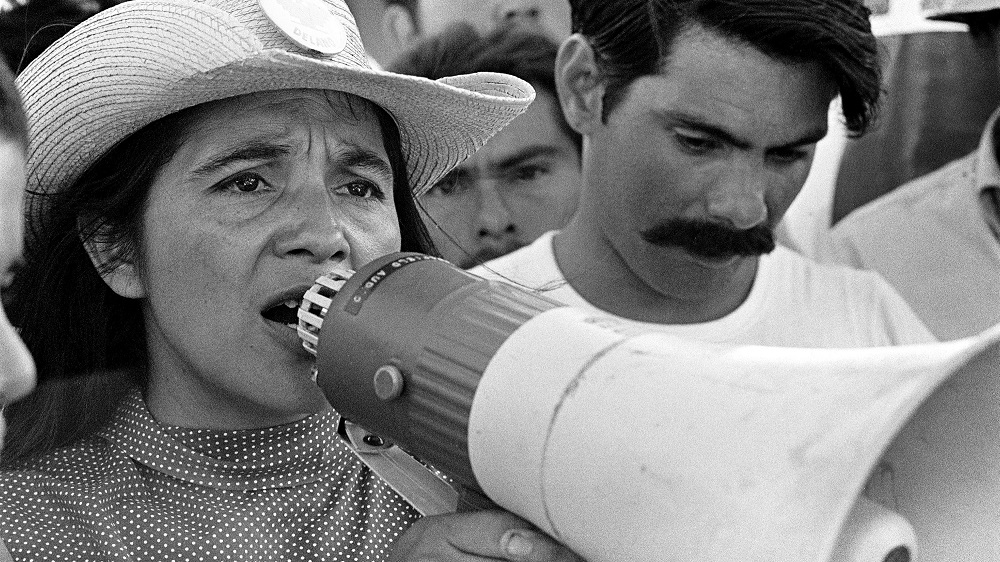
United Farm Workers leader Dolores Huerta organizes marchers on the second day of March Coachella in Coachella, California, in 1969. (Courtesy of © 1976 George Ballis / Take Stock / The Image Works)
Dolores Huerta may be a name you are not yet familiar with.
As the work for the rights of farmworkers led the headlines in the 1960s, Cesar Chavez's name was front and center. What many people don't know is that the co-founder of the United Farm Workers labor union was a strong Latina, Dolores Huerta.
I reviewed "Dolores," which airs at 9 p.m. Eastern on March 27 on PBS (check local listings), within an article on solidarity and the dignity and rights of workers at BeMediaMindful.org as part of a series on film and Catholic social teaching. Here's an excerpt:
Dolores tells the story of Dolores Huerta remarkably well. Catholic viewers may see her as a flawed human being but she continues to be a proud Latina woman who continues to work in solidarity with workers even at the age of 87. She stood up to oppressors wherever she encountered them, including the machismo of her own organization, the UFW. Though she and Cesar Chavez were colleagues who shared the same vision of fair wages and humane working conditions for agricultural workers, they argued a lot. He would fire her and she would quit. Then she would still be the first one back at work the next morning.
Dolores Huerta, like Cesar Chavez, is a model of solidarity with and between workers and the promotion of the dignity and rights of workers.
Advertisement







